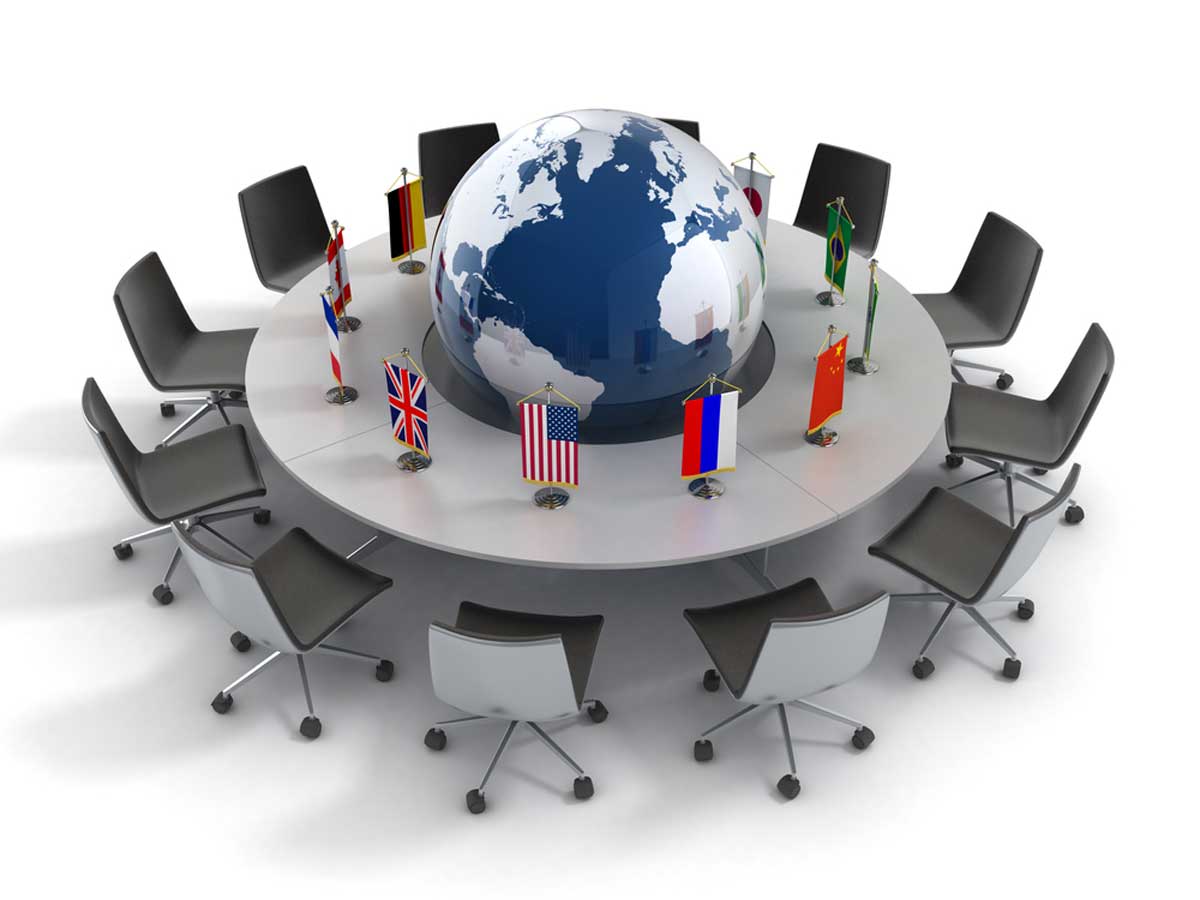In an increasingly interconnected world, the concept of "international" takes center stage. International relations, trade, and collaboration have become vital for countries, organizations, and individuals to thrive in today's globalized society. This article explores the various facets of international connections and their significance in shaping the world we live in.
What is International?
The term "international" refers to anything that involves or relates to multiple nations or countries. It encompasses interactions, agreements, policies, and events that have a global scope and influence. International affairs involve diplomatic relations, treaties, trade agreements, cultural exchanges, and collaborations on a global scale. The concept of internationality recognizes the interconnectedness of nations and the need for cooperation to address common challenges and achieve shared goals.
The Importance of International Relations
International relations are vital for maintaining peace, stability, and prosperity among nations. By fostering dialogue, understanding, and cooperation, countries can work together to address global challenges such as terrorism, climate change, poverty, and pandemics. Effective international relations also promote economic growth, trade, and cultural diversity, allowing nations to benefit from shared resources, knowledge, and experiences. Strong diplomatic ties and multilateral cooperation lay the foundation for a harmonious and interconnected world.
International relations encompass the interactions between nations, governments, and international organizations. It plays a pivotal role in fostering peace, resolving conflicts, and promoting cooperation. Through diplomacy and negotiations, countries establish diplomatic ties, exchange ambassadors, and engage in international agreements to address global challenges collectively.
The Evolution of Globalization
Globalization has been a driving force behind the growth of international connections. It refers to the increasing interdependence of economies, cultures, and societies worldwide. Over time, advancements in transportation, communication, and technology have facilitated the exchange of goods, services, information, and ideas across borders, leading to a more interconnected and interdependent world.
International Trade and Commerce
International trade has transformed the global economy, enabling the flow of goods and services across nations. Nations specialize in producing certain goods and engage in trade to access resources, expand markets, and boost economic growth. Trade agreements, such as free trade agreements and customs unions, promote trade liberalization and reduce barriers to commerce, fostering economic cooperation and prosperity.
Cultural Exchange and Diversity
International connections contribute to cultural exchange and diversity, enriching societies with new perspectives, traditions, and ideas. People from different nations interact through travel, migration, and digital platforms, fostering cross-cultural understanding, appreciation, and cooperation. Cultural exchange programs, festivals, and art exhibitions celebrate diversity, promoting harmony and mutual respect.
International Organizations and Cooperation
International organizations, such as the United Nations, World Trade Organization, and International Monetary Fund, play a vital role in facilitating international cooperation. These organizations serve as platforms for dialogue, negotiation, and collaboration on global issues, including peacekeeping, human rights, trade regulation, and financial stability. They provide a framework for countries to work together towards common goals and find shared solutions.
Global Challenges and Collaborative Solutions
International collaboration is crucial in addressing global challenges such as climate change, poverty, and public health crises. Countries pool resources, knowledge, and expertise to tackle these complex issues that transcend national boundaries. Collaborative initiatives like the Paris Agreement and the Sustainable Development Goals exemplify global efforts to create a sustainable and equitable future.
The Role of Technology in International Connectivity
Technological advancements have revolutionized international connectivity. The internet, social media, and digital platforms have bridged gaps between individuals, businesses, and communities worldwide. Instant communication, online collaboration, and e-commerce have made it easier for people to connect, share information, and conduct business across borders, fostering international integration.
The Impact of International Relations on the Economy
International relations significantly impact economies. Bilateral and multilateral trade agreements stimulate economic growth, create jobs, and attract foreign investments. Countries engage in economic alliances and regional integration initiatives to enhance their competitiveness in the global marketplace. Foreign direct investment and tourism also contribute to economic development and cultural exchange between nations.
Travel and Tourism on a Global Scale
Travel and tourism play a vital role in fostering international connections. People explore new destinations, experience different cultures, and build personal connections through travel. The tourism industry generates economic opportunities, promotes cross-cultural understanding, and strengthens ties between nations, making it an integral part of the international landscape.
International Education and Exchange Programs
Education and exchange programs facilitate the transfer of knowledge, skills, and perspectives across borders. Students and scholars pursue educational opportunities abroad, promoting academic collaboration and cross-cultural learning. International exchange programs nurture global citizens, fostering mutual respect, tolerance, and intercultural competence.
The Future of International Relations
As the world continues to evolve, international relations will play an increasingly vital role. Rapid technological advancements, geopolitical shifts, and global challenges will shape the future of international connections. Collaboration, inclusivity, and innovation will be key to building a more interconnected, sustainable, and peaceful world.
International connections are the lifeblood of our globalized society. From trade and diplomacy to cultural exchange and technological advancements, they shape our economies, societies, and individual lives. Embracing international relations with openness, collaboration, and understanding will pave the way for a brighter and more prosperous future for all.
FAQs
Why are international relations important?
International relations are essential for addressing global challenges, promoting peace, and fostering cooperation between nations.
How does international trade benefit countries?
International trade allows countries to access resources, expand markets, and promote economic growth.
What is the role of technology in international connectivity?
Technology facilitates instant communication, online collaboration, and e-commerce, connecting individuals and businesses across borders.
How does international tourism contribute to cultural exchange?
International tourism promotes cross-cultural understanding, appreciation, and the exchange of traditions and ideas.
What is the future of international relations?
The future of international relations lies in collaboration, inclusivity, and innovation to address global challenges and build a sustainable world.







 English (US) ·
English (US) ·